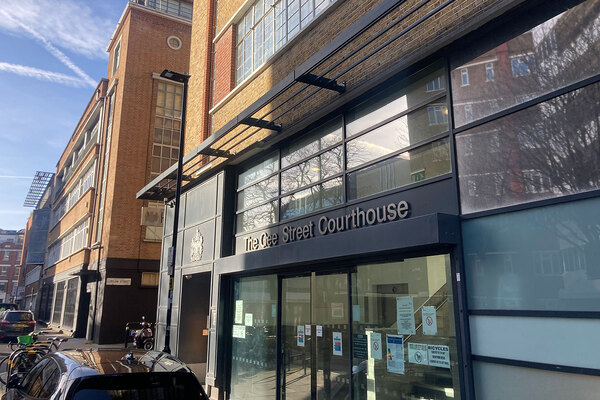You are viewing 1 of your 1 free articles
People not process: can the problematic allocations system be improved?
A more compassionate housing allocations system that focuses on individuals is not beyond reach.
Rhiannon Curry reports. Illustration by Richard Allen
A report from the Chartered Institute of Housing (CIH) released last week revealed what many housing professionals already know about the allocations system for social homes: it often fails many of the most vulnerable people.
The CIH said it conducted its research in response to concerns raised about the potential impact of local authorities’ need to ration the limited supply of social housing available to them.
Every day councils have to make decisions about who gets access to waiting lists, how those who do get access are prioritised and how pre-tenancy activities have the potential to exclude those most in need of social housing.
There is a danger, for example, that someone deemed at risk of defaulting on their rent is not given priority over a more stable tenant, even if the latter is in less acute need.
“We wanted to try and think about how to do things differently,” says Faye Greaves, policy and practice officer at the CIH, who authored the Rethinking Allocations report. “It is about trying to make sure that people’s individual circumstances and housing history are taken into account as much as possible, while still having a process.”
Far from demonising allocations processes completely, Ms Greaves says that they have a place and can help housing providers to do their jobs well. But often, their use limits the extent to which the individual is at the heart of the decision making.
“Not wanting to set people up to fail is a strong argument up to a point, but often the only alternative is homelessness,” she says. “That can’t be right.”
But there are providers trying to do something. The report highlights a number of cases where the allocations process has been tweaked to make it work more fairly, or where the result is a more compassionate system, Ms Greaves says.
Here we hear from three social landlords approaching the process differently.
Rebecca Pritchard, director of services at Crisis, says: “The current system is overly complicated and difficult to navigate. Our clients tell us that the banding decision-making process is unclear, and we hear instances of the bandings being changed at short notice without explanation.
“There are also problems with some people being excluded from social housing in whole areas because of past convictions, or arrears, even after they have worked so hard to move on in their lives. This is why our Skylight centre offering information, advice and guidance, as well as coaching and advocacy support, is so important.”
“Everyone in the UK has the right to be treated with dignity, but sadly our clients tell us that this isn’t always the case for them. We’ve worked hard to remedy this”
Rebecca Pritchard, director of services, Crisis
If Crisis members wish to look for private rented accommodation, they can be signposted to relevant property-searching websites and Local Housing Allowance rates to find housing they can afford. Many would otherwise not have access to computers or smartphones, the charity realised.
Introducing a drop-in has meant that members can access specialist help on a weekly basis rather than waiting up to two or three weeks for a one-to-one appointment. It also offers the opportunity for those with less intensive needs to access light-touch support from the service.
“Everyone in the UK has the right to be treated with dignity, but sadly our clients tell us that this isn’t always the case for them. We’ve worked hard to remedy this,” Ms Pritchard says.
The partnership finding homes for the most difficult people: Newcastle City Council/Your Homes Newcastle
Newcastle City Council is piloting a joint working arrangement between the allocations service run by its ALMO, Your Homes Newcastle, and its own private rented sector (PRS) team which focuses on applicants for social housing who have been disqualified from the allocations scheme.
A referral can be made to the PRS team to determine what assistance can be given to either find someone a home in the PRS, to help them become qualified for social housing, or, after having met with the person, whether there are mitigating factors to reconsider a disqualification decision
or a direct offer.
The pilot is being run as a small-scale trial and to date, it has been able to help around 20 applicants into social housing who would otherwise have found it extremely challenging to access a home.
Meanwhile, Your Homes Newcastle also has several projects specifically aimed at making accessing social housing easier for vulnerable groups, including a dedicated pathways team that assists people with support needs to access suitable accommodation and live independently.
This team helps people fleeing domestic violence, people in need of suitable housing after a stay in hospital, and refugees who have recently received their status, as well as other vulnerable groups.
There is also a dedicated member of staff to support European nationals to access social housing once they are granted legal status in the UK, and a worker who supports care leavers into new tenancies.
Your Homes Newcastle’s system flags up where an applicant reports having a support need which leads to contact being made to complete a pre-tenancy risk assessment. This assessment is used to work out where there may be barriers to a successful tenancy, with the aim of identifying the type of support someone may need at the point that they sign up.
“Your Homes Newcastle wants to support access to social housing for the tenants that need it most by engaging with applicants at the allocations stage and ensuring they get the help they need,” it says.
As a result, its tenancy turnover is 8.2% – significantly lower than any of its social landlord peers.















